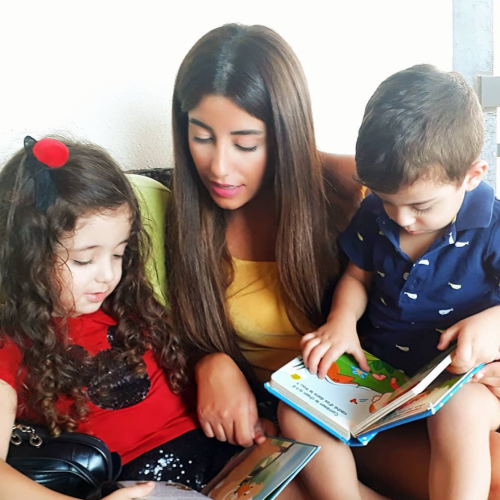
The Clean Cut That Wasn’t So Clean After All
Imagine being told your entire life that something was taken from you—for your own good. That it made you cleaner. More attractive. Less prone to disease. That it was just a little skin. That you were lucky.
Now imagine finding out, years or decades later, that none of that was true.
What you lost wasn’t minor. It was functional, sensual, protective. It was yours. You were never asked. The people you trusted didn’t question it. Or worse—they did, and still went through with it.
That’s not just misinformation. That’s gaslighting.
What Circumcision Really Took from a Generation
Circumcision didn’t just take the foreskin. It took autonomy. It rewrote the default for what a “normal” body looks like. It normalized amputation and called it healthcare. It stole consent, pleasure, and wholeness—before most boys even had a name.
And it was all wrapped in a glossy package of health, hygiene, and cultural expectation. But once you start pulling at the threads, the entire narrative unravels.
The Hygiene Hoax: Foreskin Isn’t Dirty—But This Lie Is
The most persistent myth? Circumcision is necessary for cleanliness.
The foreskin is not some unclean anomaly. It’s a self-cleaning, protective part of the male anatomy—especially during infancy. In adulthood, it requires no more care than brushing your teeth or washing your hands.
If hygiene were truly the issue, we’d be removing tonsils and toenails en masse. Or, to take it to the absurd: eyelids to avoid pink eye. But we don’t. Because it’s unnecessary. And because we value the body as whole.
So why is foreskin different?
The answer isn’t science. It’s cultural obsession. America’s fixation on genital “neatness” reveals more about its discomfort with bodies than any valid medical rationale.
Meanwhile, countries with the lowest circumcision rates—like Sweden, Germany, and Japan—also have some of the lowest rates of penile infections and disease. No mass cutting. Just basic hygiene.
Medical Mythology: Circumcision Is a Business, Not a Benefit
Circumcision was sold to American parents as a clean, clinical norm. Hospitals presented it as a routine, painless, and preventative step—just another box to check after birth.
But what they didn’t explain was what the foreskin actually does—or what’s lost when it’s removed.
We’re talking about over 20,000 nerve endings. A gliding mechanism that supports natural lubrication, reduced friction during sex, and heightened sensitivity. It’s not “extra skin.” It’s a living, functional structure.
So why does it still happen?
One word: profit.
Hospitals make hundreds per procedure. Multiply that by millions of births. Add in the downstream revenue from complications. Sprinkle in foreskin tissue sold to biotech companies and cosmetic labs for research and regenerative products.
Yes—you read that right. The body part taken from baby boys is sometimes sold and used in anti-aging skincare and medical research. That’s not medicine. That’s exploitation.
Faith, Tradition, and the Illusion of Consent
For some families, circumcision is rooted in religious or cultural tradition. That’s real—and deeply emotional. But tradition doesn’t equal informed consent. Belief isn’t ownership.
We don’t let parents tattoo or pierce their babies. Why should cutting a healthy body part be an exception?
Bodily autonomy must transcend tradition. Faith should be a personal decision—not a permanent scar.
Even within religious communities, change is happening. Groups like Jews Against Circumcision and Beyond the Bris are challenging the status quo, advocating for ethical alternatives like Brit Shalom—a non-cutting naming ceremony.
Spirituality doesn’t require blood. Only control does.
The Hidden Grief of the Intact Generation
For many men, the loss doesn’t register until something triggers it: a conversation with a partner, a documentary, or a late-night scroll past a video on foreskin restoration.
And then comes the storm: disbelief, anger, shame, sorrow. But there’s no ritual for this kind of grief. No language for it. No place to mourn something you weren’t allowed to miss.
The grief is invisible—but very real.
This generation of men was taught not to question. Not to feel. And if they do? They’re dismissed. Mocked. Told to “get over it.” Laughed off as fringe or “anti-science.”
But feelings don’t disappear because they’re inconvenient. And you can’t gaslight someone forever.
Why Most Men Stay Silent
Speaking up about circumcision is taboo. It’s emotional, politicized, and misunderstood. Men who express anger or grief are often met with ridicule or disbelief. They’re told:
- “It’s not a big deal.”
- “You turned out fine.”
- “You’re lucky you didn’t have problems.”
This is how the cycle stays alive. The silence isn’t natural—it’s enforced.
But it’s cracking.
Online communities of intact men are growing. More parents are questioning hospital forms. More people are realizing this isn’t a fringe issue—it’s a human rights one.
Breaking the Cycle: Why It Matters Now
This article isn’t about blaming parents who didn’t know better. It’s about ending the cycle of unquestioned harm.
It’s about the next baby. The next parent. The next conversation that could prevent unnecessary trauma.
You might not be able to undo what was done to you. But you can choose differently for your children. You can speak up. You can be angry. And you should be.
Because the next generation deserves the truth.
What You Can Do
- Share this article. Silence helps no one. Awareness spreads through conversations.
- Talk to your partner. Before you have kids, get on the same page.
- Say “no thanks” to routine circumcision. You don’t owe a doctor polite compliance.
- Support organizations like Intact America. Your dollars, time, and voice matter.
- Normalize the intact body. Talk about it. Teach your kids about consent and ownership of their bodies.
The Bottom Line
Circumcision gaslit a generation. It normalized harm. It buried grief. It sold a lie in the name of science, cleanliness, and tradition.
But we are not broken. We are waking up. And we are not going back to sleep.
Let’s end this for good. Not just for ourselves—but for every child born whole.
Let them stay that way.






No Comments